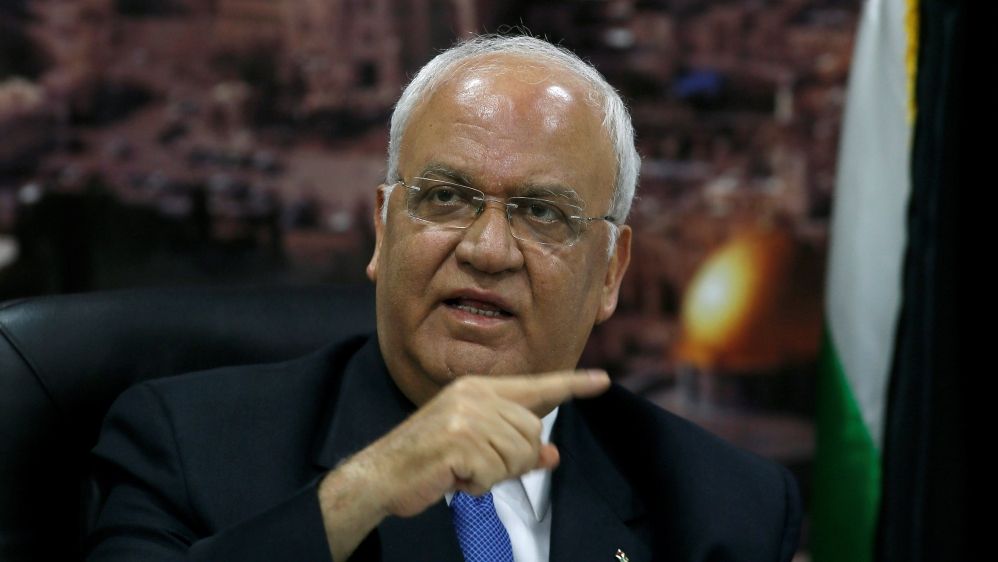Palestinian Authority to withdraw amid Trump’s Mideast peace plan

A few minutes every morning is all you need.
Stay up to date on the world's Headlines and Human Stories. It's fun, it's factual, it's fluff-free.
On Tuesday, January 28, US President Donald Trump is expected to unveil his administration’s peace plan to defuse tensions between Israel and Palestine. Trump has said he plans to release the plan shortly before he meets with Isreali Prime Minister Benjamin Netanyahu and his main political rival Benny Gantz at a White House event.
Although the specifics of the plan have yet to be released, critics suggest the event might have more to do with politics than attempts at peace, since the Palestinians have presumably not contributed to the plan in any meaningful way.
Despite reportedly making overtures to Palestinian leader Mahmoud Abbas, attempts at contact were rebuffed with Palestinian authorities outright rejecting the plan before its release on Tuesday.
“You simply can’t have a serious discussion about an Israeli-Palestinian peace plan and only invite one side to come talk about it. This is more about the politics inside Israel and inside the US than it is about any real efforts to get these two sides to an agreement,” said Michael Koplow, policy director of the Israel Policy Forum, a New York City-based American Jewish organization that works for a negotiated two-state solution to the Israeli–Palestinian conflict through advocacy, education and policy research.
Dueling narratives
Official relations with the White House and the United States Department of State were broken off by the Palestinian National Authority (PNA), after the United States declared Jerusalem the capital of Isreal in December 2017.
Besides the matter of Jerusalem, there are a host of contentious issues surrounding the successful implementation of any peace deal.
These include borders that are mutually agreed upon, proper security arrangements, Israeli settlements in the West Bank and perhaps most importantly – independent statehood for the Palestinians – which has been at the center of peace plans for decades.
In June of 2019, Jared Kushner, senior advisor to his father-in-law President Trump, spearheaded the administration’s peace plan, reportedly taking an ‘economy-first’ approach to negotiations.
Kushner’s plan included a $50 billion investment fund to aid the Palestinian economy if the terms were agreed upon. This was rejected by the then Palestinian leadership.
Observers have expressed concern over any proposed plan by the Trump Administration that would again focus on financial incentives meant to persuade Palestine into negotiating.
Political considerations
Although Netanyahu has said he hopes to “make history” at the event, Palestine has threatened to remove itself from the Oslo accords – an interim peace measure – if a deal is unveiled this week.
As continued disagreement between the two main parties in the conflict makes the acceptance of any proposed deal highly unlikely, some analysts claim that Israel-US politics are at the center of the announcement’s timing. Both Trump and Netanyahu are facing domestic challenges.
Trump is in the midst of an impeachment trial and Netanyahu is facing corruption charges. Both are also headed for upcoming reelection campaigns.
[article_ad]




Comments ()